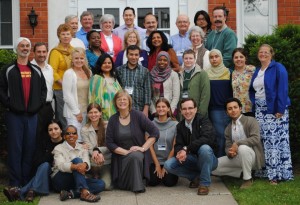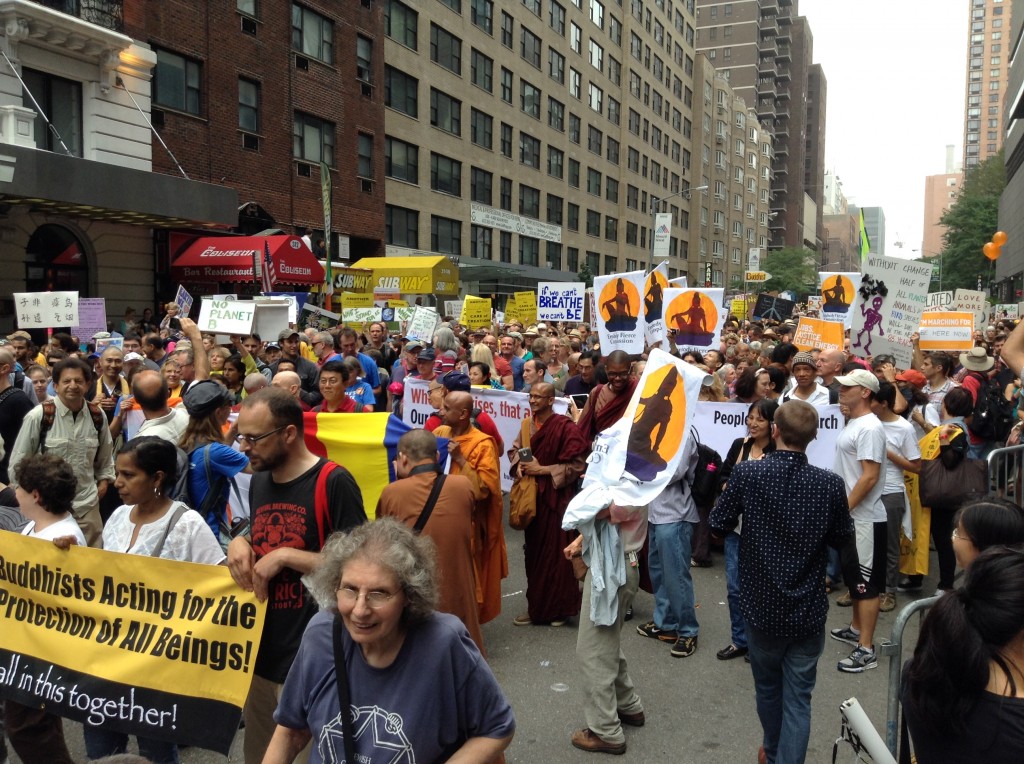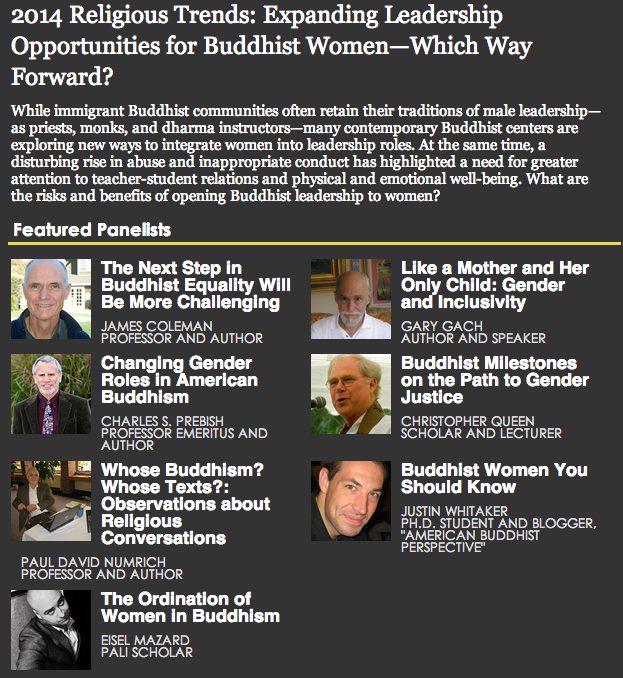My friend Pamela Ayo Yetunde is the creator of the Dharma Care website, which she describes as both “a resource for Buddhist pastoral counseling” and “a myth-buster” (more on both later).
Ayo has served as a volunteer with Zen Hospice Project, Pathways Home Care and Hospice, and other locations, and she completed Clinical Pastoral Education (CPE) at Alta Bates Summit Medical Center (all in the San Francisco Bay Area). Ayo holds a certificate in Buddhist chaplaincy from the Sati Center for Buddhist Studies, a certificate in spiritual direction from Mercy Center, and a M.A. in Culture and Spirituality from Holy Names University. She is board certified by the College of Pastoral Supervision and Psychology, and is currently completing her doctorate in Pastoral Counseling at the Columbia Theological Seminary. In addition, Ayo is a graduate of the Community Dharma Leaders program at Spirit Rock Meditation Center.
Ayo is also the author of three books: Vigil: Spiritual Reflections on Your Money and Sanity, The Inheritance: A Stock-Picking Story and Beyond 40 Acres and Another Pair of Shoes: For Smart Sisters Who Think Too Much and Do Too Little about Their Money.
Ayo and I have seen each other at past Buddhist Chaplaincy Symposiums at the Sati Center in Redwood City, CA. We also both participated in the Religious Diversity Leadership Workshop at Hartford Seminary in Hartford, CT, this past summer. You can find Ayo in the photo below (click to enlarge), second from the left in the front row. (You’ll just have to see if you can spot me…)

After Ayo unveiled the Dharma Care website, I contacted her about an interview. We exchanged questions and answers over Facebook messages recently, and I’m happy to be able to present this interview with her about the site. Enjoy!
*
Ayo, would you please introduce us to Dharma Care? What is it?
www.dharmacare.com is a website created for Insight Meditation teachers, leaders, chaplains, counselors and care council members interested in utilizing the Buddhist pastoral care and counseling tradition in their sanghas and other places where they provide spiritual and religious care.
Please tell us about Dharma Care as a “myth buster.” I love that phrase.
I read a scholarly article written by a well-respected Christian pastoral theologian who wrote that the pastoral tradition belonged exclusively to the Christian tradition. It is the case that many people, including Buddhists, also believe that myth. The Pali Canon contains numerous suttas on how to be pastoral, through the use of the cowherd metaphor. Christians use the sheep metaphor. The point in both traditions is that a leader should learn how to gather and maintain the community.
There’s a section at the site called “Why Pastoral Counseling?” Certain aspects of long-term pastoral counseling have been largely unexplored in the world of Buddhist chaplaincy. Would you please say a bit about pastoral counseling and your emphasis on it at the site and in your work?
The rise in Buddhist chaplains is encouraging. Chaplains from all traditions typically work in situations where they encounter people once or a few times, for brief visits, to engage in a ritual or rite. Chaplains become objects in the minds of those they serve, and those we serve become objects in our minds. In settings where chaplains see people many times, over many months, even years, we may become one of the people, if not the only person, who is an anchor in their lives. As relationships endure, people tend to reveal more, reflect more, check in more, develop more. We do the same thing. In these longer-term situations, we move from objects to subjects. More unconscious material gets stirred up and revealed. Meanings and interpretations are sought. Identities get formed and personalities displayed. My hope is that www.dharmacare.com can be a resource for spiritual caregivers who want to reflect on the intersubjective situations they find themselves in in longer-term situations, from a Buddhist perspective.
Would you please also say something about “creating an alliance?” Again, I’m really struck by the language there.
There is a tension between some Buddhist teachings and the work provided by spiritual caregivers. The tension is about emotional connection. Does being emotionally connected to the ones we serve cause suffering? If so, should we be unemotionally attached and if so, what kind of attachment exists without emotion? Also, Buddhists are taught to be about “the truth,” but how likely is it that we will know “the truth” of the people we serve? Creating an alliance is about letting go of knowing the truth and allowing ourselves to be emotionally connected, through lovingkindness and compassion, but not in a deluded sense. We also need to cultivate wisdom, knowing that emotional connection can lead to suffering when the connection is lost. Our work is full of losses, therefore in this work, we have to be committed to taking care of ourselves.
Finally, Ayo, what is your hope for the site? How can readers help or get involved?
I intend to continue adding to the site. My hope is that www.dharmacare.com will be used as a resource, just as a book is used, by caregiving professions, students, and non-Buddhist. If Buddhist caregivers want to contribute an article, they can do so.
*
On behalf of readers: Thank you, Ayo!
Be sure to visit the Dharma Care website at www.dharmacare.com.












